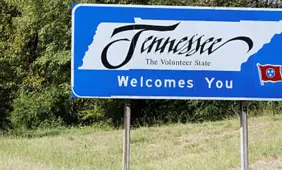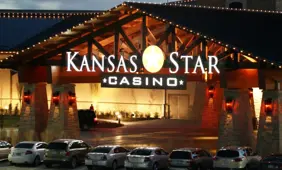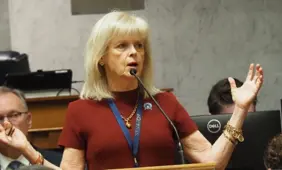Pennsylvania Supreme Court to Decide Fate of Controversial Skill Games
The Pennsylvania Supreme Court heard arguments this week that could determine whether thousands of so-called "skill games" operate legally or are unlicensed slot machines.

In a closely watched session in Harrisburg, justices examined competing claims from the state and machine makers over whether the devices rely on player ability or on chance. The outcome could force the removal of machines currently found in bars, convenience stores and social clubs across the commonwealth, reshape enforcement by the Pennsylvania Gaming Control Board and influence legislative efforts to regulate or tax the industry.
Supreme Court Hearing Focuses on Skill Versus Chance
State lawyers, representing the Attorney General's Office and the Department of Revenue, argued that the machines function primarily through randomness. Counsel told the court that most users never reach the advertised memory-based bonus that manufacturers describe as the skill element; instead, play progresses through automatic rounds that mirror the mechanics of video slots. "For the typical player, the devices are indistinguishable from chance-driven slot machines", a Department of Revenue attorney told the justices during oral argument.
Capital Vending, which supplied units seized in a 2019 Dauphin County sweep, countered that previous case law establishes the appropriate test: whether skill, when applied, can determine the outcome. An attorney for the company argued that skilled players can reliably win the bonus challenge and that payout patterns differ from regulated casino slots. "These products were designed to reward knowledge and memory, not merely to mimic the payout curves set by the Gaming Control Board", the Capital Vending lawyer said. "Under the legal standard courts have used for years, these machines are not casino devices."
The legal fight has unfolded against a decade of contested rulings and enforcement actions across Pennsylvania. County prosecutors and state investigators have mounted raids and civil actions targeting machines that they say operate outside of state gambling statutes. Industry backers have repeatedly pushed bills at the statehouse to create a tax-and-regulation framework; legislators have considered proposals, but so far, no comprehensive law has passed.
Related: Pennsylvania Lawmaker Still Aims to Push Skill Games Market
More Regulation
Industry, Regulators, and Public Safety Concerns
Casinos and the regulated gaming sector have been outspoken critics of the unregulated skill-game market. Land-based operators say the machines undermine tax revenue and create an uneven competitive landscape because casino slot machines are subject to strict oversight and high tax rates. "The rapid proliferation of these devices erodes the integrity of Pennsylvania's gaming system and diverts funds meant for public coffers", said a casino industry representative speaking on condition of anonymity.
Public-safety concerns have gained force following a high-profile Philadelphia civil trial last year that found a manufacturer liable in a 2020 robbery connected to a machine. Jurors awarded significant damages after concluding that inadequate safety measures and manual cash handling left store employees exposed to violence. The verdict has been cited by prosecutors as a reason why tighter controls or outright removal of some units are necessary.
Supporters of the machines – many of them small retailers – argue the devices supply vital revenue to sustain businesses and jobs. They maintain that Washington or Harrisburg lawmakers, not the courts, should create clear rules. "Our members want transparency and a path to regulation, but they also need the income these games provide today", an industry trade representative told the court.
Legal observers say the Supreme Court’s decision, expected next year, could take several forms: a ruling that treats the devices as gambling and affirms enforcement, a declaration that they are lawful games of skill, or a narrower decision remanding fact-intensive questions to lower courts. Whatever the outcome, enforcement actions and pending civil cases are likely to accelerate in the interim.
Next Steps for Lawmakers and Regulators
If the high court sides with state regulators, the General Assembly will face renewed pressure to create a statutory regime for any devices that survive legal scrutiny. Conversely, a ruling in favor of manufacturers is likely to prompt renewed legislative debate about taxation and consumer safeguards, and could spur the Pennsylvania Gaming Control Board to revise guidance. For businesses, retailers and local governments, the decision will be a watershed moment that determines whether thousands of machines remain in play or are removed from the market.
RELATED TOPICS: Regulation
Most Read
Must Read
 Interviews
Interviews
Exclusive Interview: Levon Nikoghosyan Shares AffPapa Winning Formula for Successful iGaming Events
Dec 03, 2025 Interviews
Interviews






Review this New Post
Leave a Comment
User Comments
Comments for Pennsylvania Supreme Court to Decide Fate of Controversial Skill Games